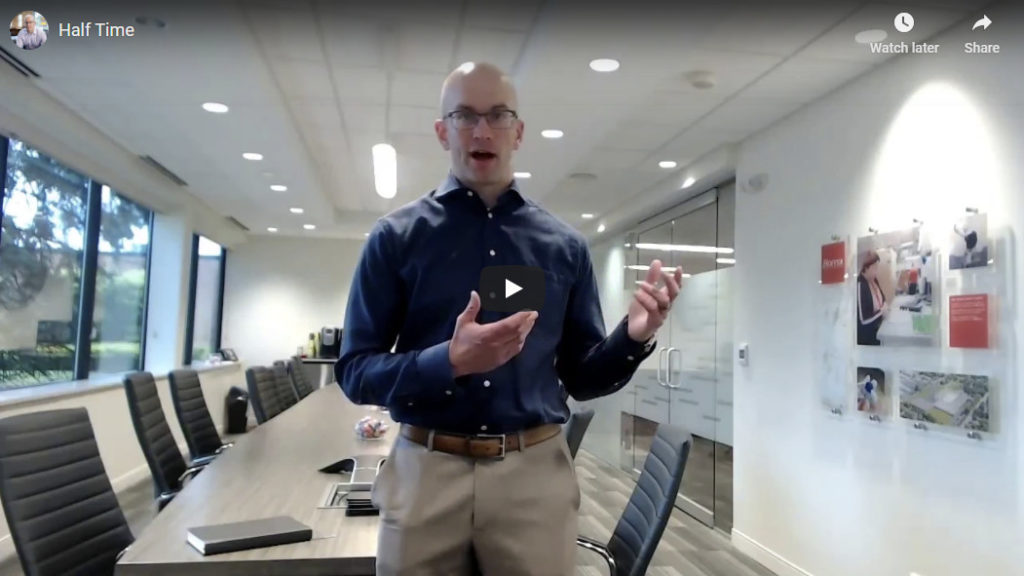Some Thoughts on Traditional Job Roles & Expectations
I was recently reminded reading the Harvard Business Review that most organizations rely on workers to fulfill the specific job description associated with the title of the position they are being hired for, rather than allowing them, the worker, to create a role more suited to their skills set. Given the challenges all manufactures —us included —face to cut costs, optimize processes, and become more efficient, this got me thinking: should workers be tied to a job description? Should we persist in the standard model, largely based on hierarchy, that can restrict workers from engaging in activities outside their standard job role/title?
I pose this question because it is an aspect of organizational life that I have been thinking about since my role morphed to include operations, in addition to both sales and engineering. Frankly, I have found it easy to give our sales and engineering teams complete autonomy. That said, they all have “traditional titles” on their business cards, and while their deliverables are mutually-constructed, it is safe to say that they’re pretty standard in the industry. Most do, however, play hybrid roles, meaning they contribute more than their traditional title would suggest. Some have customer service backgrounds, and provide value that is addition of our standard customer service team (one recently drove parts to a customer on a Saturday morning, for instance). A few others are more technical, and can provide tooling knowledge that goes beyond the scope of their “Business Development” title. And perhaps the most impressive example is our proprietary product team, which can offer unique knowledge on filling technology in the flexible packaging market, and is supported by our automation team that can completely change over an existing horizontal, form, fill, and seal, and pre-spouted pouch machines to accommodate our parts.
I fear the above sounds like a brag, so here is where we are not as “advanced”: the manufacturing floor. While certain groups in our company are empowered to use their gifts, especially when those gifts are outside the scope of their job title, our manufacturing floor still feels very “traditional” as I suspect it did two decades ago. Hourly workers, in particular, have a lot more structure around the tasks they are supposed to perform on a daily basis. And like all of us, they have challenges they have to deal with on a daily and weekly basis. For example, I have been told frequently that given our current environment at Hoffer Plastics, they feel continually challenged around the level of business (i.e. busyness on the floor): Foremen struggle to find weekend coverage in all our plants, and I sense burnout on the rise as weekend work has not slowed down so far in 2018 (of course I fear it will). Therefore, engagement is a big deal to leaders like me. I value our hourly workers because the work they do is, in a lot of ways, what we all get paid for by our customers. So as a leader, it is my job to uncover ways to increase their engagement, and frankly, happiness.
So this brings me full circle to the question at hand: would more autonomy increase worker engagement? How would it work, given the non-negotiable aspects of manufacturing (like quality standards, production demands, etc.)? How can I train our plant managers to embrace this kind of thinking?
These are thoughts on my mind at the gym right now (where I do my best thinking!).
I don’t have the answer to these questions today, which is one of the reasons I am writing this post. I hope to start a conversation with you, the reader. What ideas do you have for improving employee morale and engagement? What ideas do you have for shaking up traditional hierarchies on manufacturing floors?
To be clear, we do uncover hidden talents on the floor, and we do promote from within. For example, our plant managers have all come from within over the decade I have been here, and that has had ripple effects in terms of internal promotions. I have been pleasantly surprised when hidden gems have stepped up in their new roles. But it still bothers me that we are most likely still missing hidden potential. (I’m sure I will hear about “hidden talents” from people on our floor after posting this, which is one of the reasons I am writing it in the first place!).
I’ll close by repeating some of my core beliefs: Every job matters, and every human being here matters. As leaders, we have to use our leadership gifts (whatever they are) to help marry people’s skills, passions, and unique abilities to meeting our customers’ needs. After all, the mission remains to manufacture plastic parts that increase our customers’ productivity and profitability. They remain the hero!
I could not finish without reminding the reader of that.
Some Thoughts on Traditional Job Roles & Expectations Read More »










